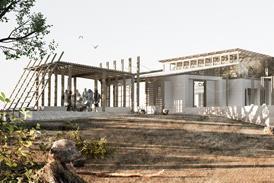- Home
- Intelligence for Architects
- Subscribe
- Jobs
- Events

2025 events calendar Explore now 
Keep up to date
Find out more
- Programmes
- CPD
- More from navigation items
Arb considers adding climate skills to architects’ standards

Specialist knowledge could sit alongside fire safety competences, says registrar
The Architects Registration Board has announced it is considering adding climate-related design skills to its official criteria for qualifying as an architect.
Understanding of climate change mitigation could sit alongside fire and life safety competences, the professional regulator said today.
The Arb board began this work in July and has established two working groups which are due to meet for the first time in January. They have been asked to prepare proposals for a board meeting in March, after which – if approved - they would go out for consultation.
…
This content is available to registered users | Already registered?Login here
You are not currently logged in.
To continue reading this story, sign up for free guest access
Existing Subscriber? LOGIN
REGISTER for free access on selected stories and sign up for email alerts. You get:
- Up to the minute architecture news from around the UK
- Breaking, daily and weekly e-newsletters
Subscribe to Building Design and you will benefit from:

- Unlimited news
- Reviews of the latest buildings from all corners of the world
- Technical studies
- Full access to all our online archives
- PLUS you will receive a digital copy of WA100 worth over £45
Subscribe now for unlimited access.






